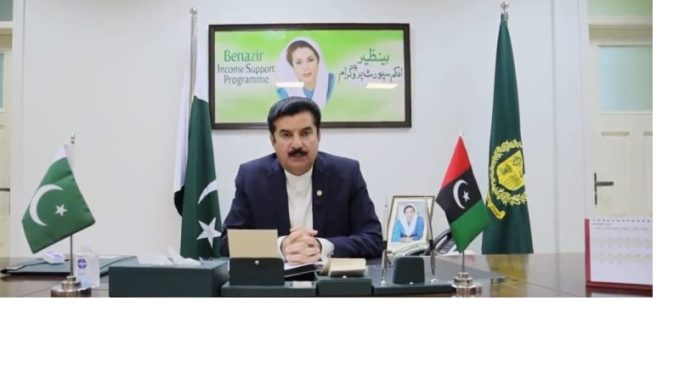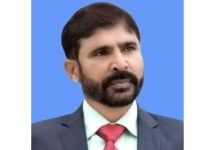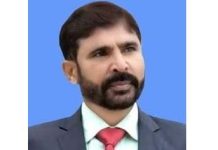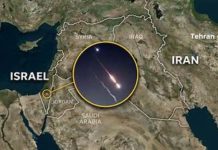Humera Ambareen
Governor Faisal Karim Kundi made a significant and strategic move during Pakistan’s 77th Independence Day celebrations in Peshawar by bringing together diplomats from the United States, Iran, and Afghanistan. This wasn’t just a ceremonial gesture but a calculated decision highlighting Kundi’s understanding of global politics and his commitment to positioning Pakistan, particularly Khyber Pakhtunkhwa, as a critical player in regional diplomacy. By facilitating this gathering, Kundi demonstrated that even amid challenging global relations, Pakistan can be a platform for dialogue, cooperation, and peace.
Why This Gathering Matters
The United States and Iran have long had a tense relationship, marked by disagreements over nuclear policy, regional influence, and a history of mutual suspicion. Afghanistan, caught in the middle, has been a battleground for these and other powers, struggling to find stability and peace. Given these dynamics, bringing representatives from these three nations together in Peshawar was no small feat.
Governor Kundi’s decision to host these diplomats during Independence Day sent a clear message: Pakistan is ready to engage with all sides, even those often at odds. This event showed that Khyber Pakhtunkhwa, a region frequently associated with conflict and security issues, is also a place where critical international discussions can begin. The gathering wasn’t just about celebrating Pakistan’s past; it was about showcasing the country’s potential role in shaping a more peaceful and cooperative future for the region.
What This Means for Khyber Pakhtunkhwa
Khyber Pakhtunkhwa has long been at the crossroads of regional conflict, particularly because of its proximity to Afghanistan. For years, the province has been seen primarily through the lens of security—dealing with the spillover effects of war, the challenges of refugee influxes, and the impacts of terrorism. However, Governor Kundi’s initiative shows that Khyber Pakhtunkhwa can be much more than a frontline in these struggles—it can be a hub for diplomacy and international cooperation.
By bringing together diplomats from the U.S., Iran, and Afghanistan, Kundi highlighted Khyber Pakhtunkhwa’s strategic importance not just within Pakistan, but on the global stage. This event has the potential to shift how the province is perceived internationally. Rather than being seen solely as a region affected by conflict, Khyber Pakhtunkhwa can now be viewed as a place where meaningful discussions and peace-building efforts can take place.
For the people of Khyber Pakhtunkhwa, this shift in perception is crucial. Increased international attention could lead to more investment in the province, boosting its economy and creating new opportunities for its residents. The province’s enhanced status could also lead to greater political influence within Pakistan, giving its leaders more leverage in national and international decision-making processes. Kundi’s actions have opened the door for Khyber Pakhtunkhwa to play a key role in shaping the future of the region, particularly about Afghanistan.
The Bigger Picture for Pakistan
From a national perspective, this gathering reflects Pakistan’s strategic interests in maintaining and enhancing its role in international relations. In a world where global alliances are constantly shifting, and regional tensions remain high, Pakistan’s ability to engage with major global powers is crucial. The presence of U.S., Iranian, and Afghan diplomats at the same event underscores Pakistan’s potential to serve as a mediator, a neutral ground where important discussions can take place.
This is especially relevant in the context of Afghanistan. As Afghanistan continues to seek stability, Pakistan’s role as a facilitator of dialogue among the key players will be vital. Governor Kundi’s initiative sends a clear message that Pakistan is ready to support peace efforts and to help bring stability to the region. This aligns with Pakistan’s broader foreign policy goals of maintaining balanced relationships with global powers while advocating for peace and stability in its neighbourhood.
Furthermore, the involvement of the United States and Iran—two countries with a long history of enmity—adds another layer of significance to this event. By hosting representatives from both nations, Kundi demonstrated Pakistan’s commitment to engaging with all relevant parties, regardless of their bilateral conflicts. This approach aligns with Pakistan’s broader diplomatic strategy of being a neutral player capable of facilitating dialogue between nations with divergent interests.
The Power of Symbolic Gestures
While some might view this event as merely symbolic, it’s important to recognize that in diplomacy, symbolism often precedes substantive action. The fact that U.S., Iranian, and Afghan diplomats were willing to come together in Peshawar indicates a willingness to engage, however tentative that engagement might be. Such gatherings can pave the way for more serious talks in the future, and that’s where real progress can be made.
Governor Kundi’s ability to bring these diplomats together shows his understanding of how diplomacy works. Relationships between countries often start with small, symbolic steps that lead to bigger, more meaningful discussions. By facilitating this meeting, Kundi has created an opportunity for dialogue that could have significant impacts down the road. This event was not just about the optics; it was about setting the stage for potential diplomatic breakthroughs that could benefit the entire region.
Long-Term Implications for Khyber Pakhtunkhwa
The long-term implications of Governor Kundi’s diplomatic efforts extend far beyond the immediate context of Independence Day celebrations. By positioning Khyber Pakhtunkhwa as a venue for international diplomacy, Kundi is laying the groundwork for the province’s future role in regional and global affairs. This move could attract further international attention to the province, potentially leading to increased investment, development, and cooperation.
For the people of Khyber Pakhtunkhwa, this redefinition of their province’s role on the global stage could lead to tangible benefits. Increased international attention and investment can translate into economic growth, job creation, and improved infrastructure. Moreover, the province’s enhanced status could lead to greater political influence within Pakistan, giving its leaders more leverage in national decision-making processes.
In the context of Pakistan’s overall diplomatic strategy, this event highlights the importance of engaging with all relevant stakeholders in the region. As Pakistan continues to navigate its relationships with global powers, the ability to bring together diverse and often conflicting parties will be crucial. Kundi’s actions demonstrate that Khyber Pakhtunkhwa can be more than just a security buffer—it can be a proactive participant in shaping the region’s future.
Building Bridges for a Better Future
Governor Faisal Karim Kundi’s decision to host U.S., Iranian, and Afghan diplomats during Pakistan’s 2024 Independence Day celebrations in Peshawar was a significant diplomatic achievement. It wasn’t just about celebrating Pakistan’s past—it was about shaping its future. By hosting this gathering, Kundi has shown that even in a region often associated with conflict, there is space for dialogue, understanding, and cooperation.
This move benefits not only Khyber Pakhtunkhwa but also strengthens Pakistan’s position as a key player in international relations. Through his leadership, Kundi has demonstrated that Pakistan, and particularly Khyber Pakhtunkhwa, can be a place where important international conversations begin. This is a win for the province, for Pakistan, and for the hope of a more peaceful and cooperative future in the region.
Governor Kundi’s actions have elevated Khyber Pakhtunkhwa’s status on the global stage, positioning it as a region where important international conversations can and should happen. As Pakistan continues to navigate the complexities of global diplomacy, the significance of this event will likely be remembered as a pivotal moment in the country’s efforts to build bridges in an increasingly divided world. Through his leadership, Kundi has shown that even in a region often defined by conflict, there is room for dialogue, understanding, and progress. This move not only benefits Khyber Pakhtunkhwa but also strengthens Pakistan’s position as a key player in international relations, capable of facilitating meaningful conversations between global powers.

















